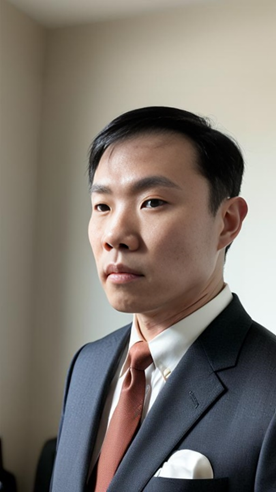On Friday I had the opportunity to have a chat with Dr. Eric Lim who kindly gave me an hour of his time whilst he was between lectures to talk about one of his (and my) favourite topics, bitcoin and cryptocurrency.
Eric is an Associate Professor in the School of Information Systems and Technology Management (SISTM) at UNSW Business School, UNSW Sydney. He holds a PhD in Business Administration from Simon Fraser University (Canada) as well as a Master of Science degree from the National University of Singapore (Singapore) and a Bachelor of Communication degree from Nanyang Technological University (Singapore).
Eric currently teaches a 10-week intensive blockchain course called Web3 and Blockchain Applications which you can learn more about here.
Below is a highly paraphrased summary of the discussion where I ask Eric about a range of topical questions ranging from crypto education, macroeconomics, money and bitcoin.
Interview with Dr. Eric Lim

What are the biggest challenges in educating the public about cryptocurrencies?
In a fast-paced world with lots of information, people are reduced to soundbites of information driven by media headlines to inform their opinions. Scams, exchange collapses and speculation are all you hear about but not much in the way of the breakthrough use cases that are moving the blockchain industry forward. For example, stablecoins, tokenization of real estate and the emergence of new money – “cryptos killer app”.
As an educator, what are some of the challenges you see with teaching your students about bitcoin and cryptocurrencies?
You do get a lot of students that are just here to get their degree, high grades (hopefully) and leave. But there isn’t as much incentive to truly learn for the sake of understanding and retaining the knowledge, or why it’s important. We live in a society that’s driven by how this new thing can make me more money or get into a job.
Whilst there’s nothing wrong with making money, you do see that it’s a key driver for younger people interested in learning about and investing in cryptocurrencies. They’re looking for ways to trade the market, using various chart patterns and indicators to try and time entry and exit points. This isn’t something I provide in my course as it’s a very fine line between educating and providing financial advice which requires a license. Understandably, money is a big driver for young people looking for alternative ways to get ahead in a world of high house prices and expensive interest rates on mortgages and loans.
What are your thoughts on the broader global macroeconomic situation? The US finds itself in an ever increasing $35T of public debt, with more than $200T expected to be owed when factoring in future spend such as social security, Medicare and veteran care [1].
This is a controversial topic as the mainstream media often shies away from critiquing some of the largest financial institutions and governments in the world when it comes to how money and debt works.
My course covers the history of money in the very first section we cover concepts from Austrian economists such as Von Mises who wrote The State Theory of Money in 1912 where he depicts how money can either get its value from the command of the state or the estimation of commerce through the devotion of human time and energy (our most valuable resource).
Fiat currencies today are very much based on the command of the state model, at least in terms of how they are created with supply determined by a combination of central bank and government policies. How fiat currencies are distributed has tremendous influence on how humans channel their valuable time and energy. Bitcoin, being the most decentralised digital asset, represents a return to the free market of money.
What are your thoughts on bitcoin as a distinct digital asset amongst the various other cryptocurrencies?
First off, “I like bitcoin a lot”. It’s the most decentralised asset with a finite supply of 21m. However, I don’t support the small faction of ‘bitcoin maximalists’ that see every other token as a scam. It’s true that crypto is rife with scams and projects that have limited use cases, but there are also really clear use cases and value that are being provided by the broader community which include the tokenization of real-world assets which our thinktank (UNSW Crypto Clinic) supports for the likes of DigitalX, one of Australia’s leading digital asset funds.
What does the future hold for the coming years for you, Eric?
We’ll be looking at growing the enrolments for students into my 10-week course which you can learn more about here. Simultaneously, I’ll also be continuing to work on delivering quality industry collaborations and alignment between some of our talented students and institutions that are passionately trying to solve real-world problems with novel solutions, be it tokenization, automated crypto evaluation techniques, or a project my collaborators and I are currently working on that is a decentralized media platform that incentivizes truth-seeking and disincentivizes misnformation.
.png)
.png)